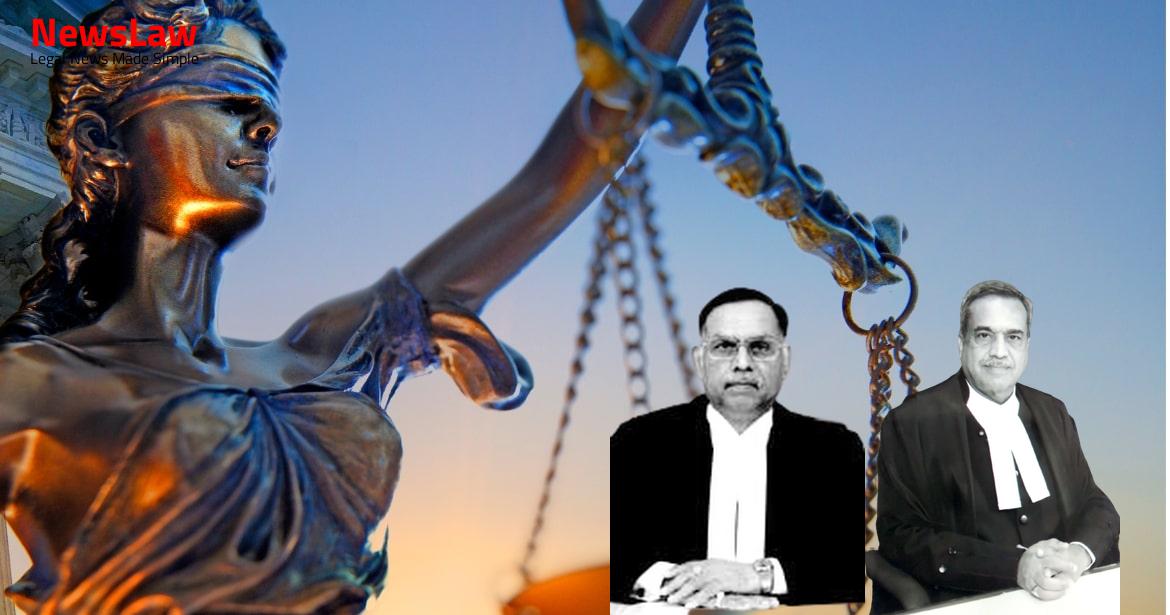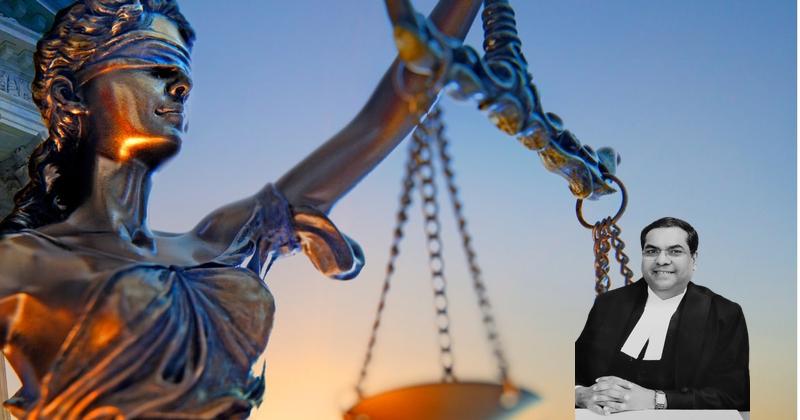Delve into the intricate legal analysis undertaken by the court in a notable drug possession case where the appellant’s conviction was overturned. The case highlights the importance of judicial review in ensuring fair and accurate legal outcomes. Follow along to understand how the court’s interpretation shaped the final judgment in this complex legal matter.
Facts
- The appellant admitted to being involved in the trade of charas to increase his income.
- The NCB officials became suspicious due to the actions and responses of the appellant.
- Samples of charas were sealed and signed by both NCB officials and the appellant-accused.
- The appellant was questioned about the smell of charas and found in possession of a significant quantity of it.
- The appellant was tried for a charge under Section 20 of the NDPS Act based on the evidence presented by the prosecution.
- The Sessions Judge in Shimla acquitted the accused due to doubts in the prosecution’s case and inconsistencies in evidence.
- The trial court acquitted the appellant-accused as there were no independent witnesses to support the prosecution’s case, and the seized charas was not directly linked to the appellant.
- Non-compliance of Section 50 of the NDPS Act was pointed out due to mishandling of samples which raised concerns about possible tampering.
- The prosecution’s case was deemed unnatural and improbable by the trial court.
- The High Court, upon a reevaluation of evidence, found the prosecution had proven the case beyond a reasonable doubt, convicting the appellant for possession of charas and sentencing to 15 years of rigorous imprisonment along with a fine.
Also Read: Interpretation of Promotion Criteria in University/College Setting
Arguments
- The appellant’s counsel argues that the trial court’s acquittal of the appellant should not have been overturned by the High Court without sufficient reasons.
- The appellant was at the counter during the relevant time, indicating that the seized charas was in his conscious possession.
- The sentence of 15 years’ rigorous imprisonment with a fine of Rs. 2,00,000 is deemed excessive and disproportionate considering the circumstances and the appellant’s age, who is a temple pujari.
- The prosecution’s case not being supported by independent witnesses is not sufficient grounds to reject it as the incident occurred near the village site.
- The ASG contends that the appellate court has the power to review evidence and come to its own conclusion on acquittal orders.
- The ASG argues that the findings of the trial court are erroneous and therefore subject to review by the High Court in appeal.
- The defense witness testimony was allegedly not properly considered by the High Court.
- The High Court’s interference with the acquittal judgment based on the possibility of another view is challenged by the appellant’s counsel.
- The argument that the trial court’s view is not a possible one based on the evidence is negated by the ASG who states that appellate courts can correct such errors.
- The search notice issued to the appellant was claimed to have been not compliant with the NDPS Act, per the appellant’s counsel.
- The reliance on official witnesses by the High Court to find the appellant guilty is disputed by the ASG.
- There is allegedly no conclusive evidence that the appellant was in exclusive and conscious possession of the seized material, as it was found near the dhaba counter.
- The respondent argued that there were no sufficient grounds for the appeal
- They highlighted the lack of evidence supporting the appeal
- The respondent emphasized that the lower court’s decision was based on solid legal reasoning
- They requested the appeal to be dismissed
Also Read: Challenging Legal Analysis in 1989 Scheme Eligibility Case
Analysis
- The trial court’s findings on conscious possession, non-compliance of Section 50 of the NDPS Act, and the credibility of prosecution witnesses were overturned by the High Court.
- The court emphasized the need for a functional and flexible approach in defining possession, considering the purpose of the enactment.
- The appellant’s failure to present witnesses supporting his version and the discovery of charas on his wife’s land near the temple were significant factors.
- The court rejected the trial court’s concerns about the quantity of charas found and the possibility of tampering with the evidence, citing procedural safeguards.
- The involvement of NCB officials based on prior information, as well as the credibility of key prosecution witnesses, supported the conviction of the appellant.
- Contrary to the trial court’s judgment, the absence of independent witnesses was justified given the late hour and the relationship of those present at the dhaba with the accused.
- The court upheld the findings of the High Court regarding conscious possession and the credibility of prosecution witnesses, leading to the appellant’s conviction.
- In the case of Vinod Kumar, paragraphs 17 and 18 of the judgment refer to the accused being acquitted, further reinforcing the presumption of innocence.
- The trial court’s decision in favor of the accused strengthens this presumption of innocence.
- If two reasonable conclusions can be drawn from the evidence presented, the appellate court must consider this in their decision-making process.
- The judgment of the High Court is considered sound and not flawed to overturn the conviction.
- The burden of proof lies on the appellant to justify possession, which was not met in this case.
- The presumption under Section 54 of the NDPS Act applies due to the appellant’s failure to explain possession.
Also Read: Legal Analysis of Unilateral Cancellation of Registered Sale Deed
Decision
- The appellant was originally sentenced to 15 years’ rigorous imprisonment with a fine of Rs.2,00,000/-
- Considering the unique circumstances of the case, the appellant’s claim to be a temple priest, and his age of about 65 years, the sentence is modified
- The sentence is reduced to 10 years while maintaining the conviction and fine imposed by the High Court
- The High Court’s sentence dated 31.12.2012 is modified, and the appeal is partly allowed
Case Title: JEET RAM Vs. THE NARCOTICS CONTROL BUREAU, CHANDIGARH (2020 INSC 545)
Case Number: Crl.A. No.-000688-000688 / 2013



